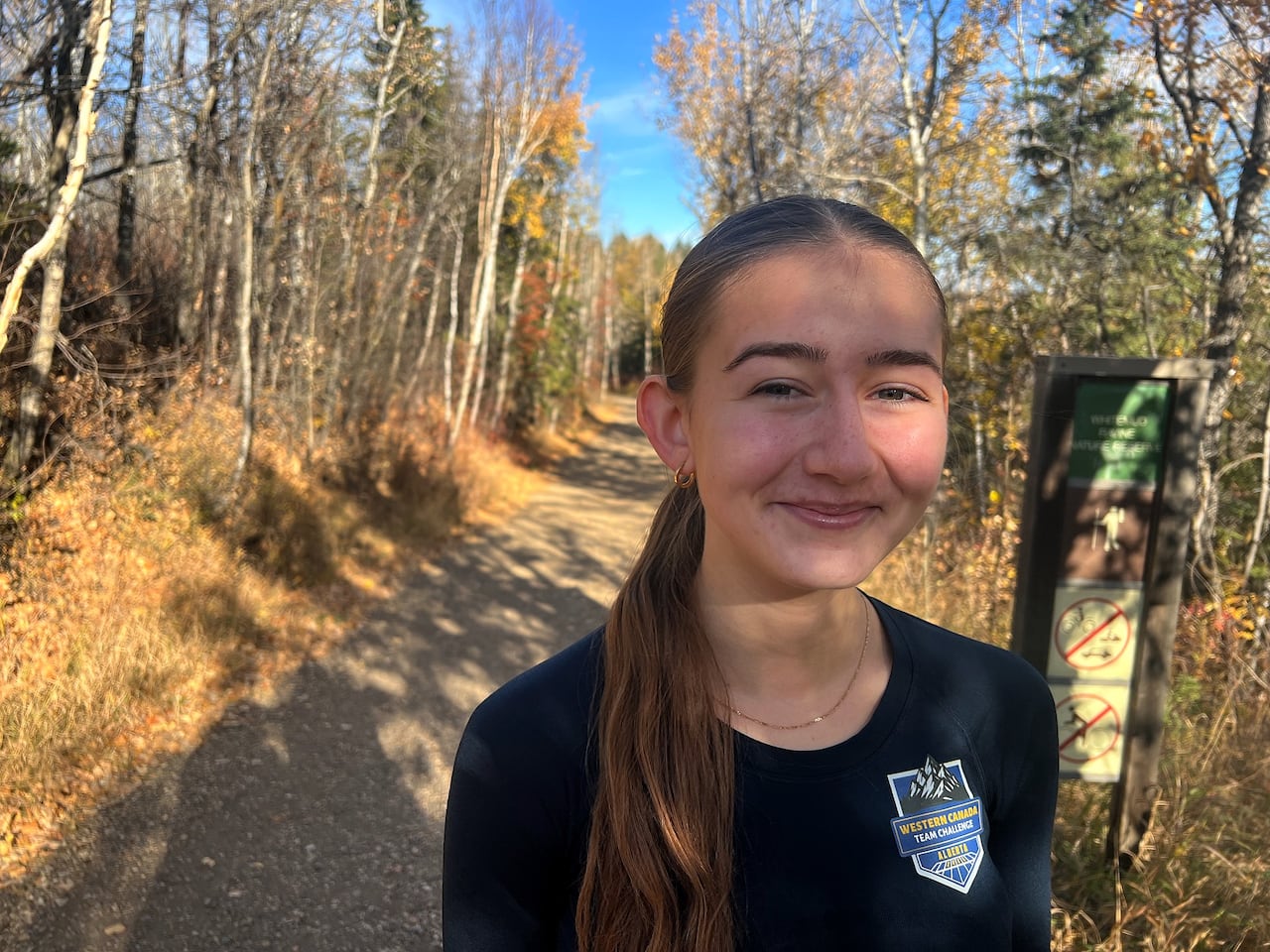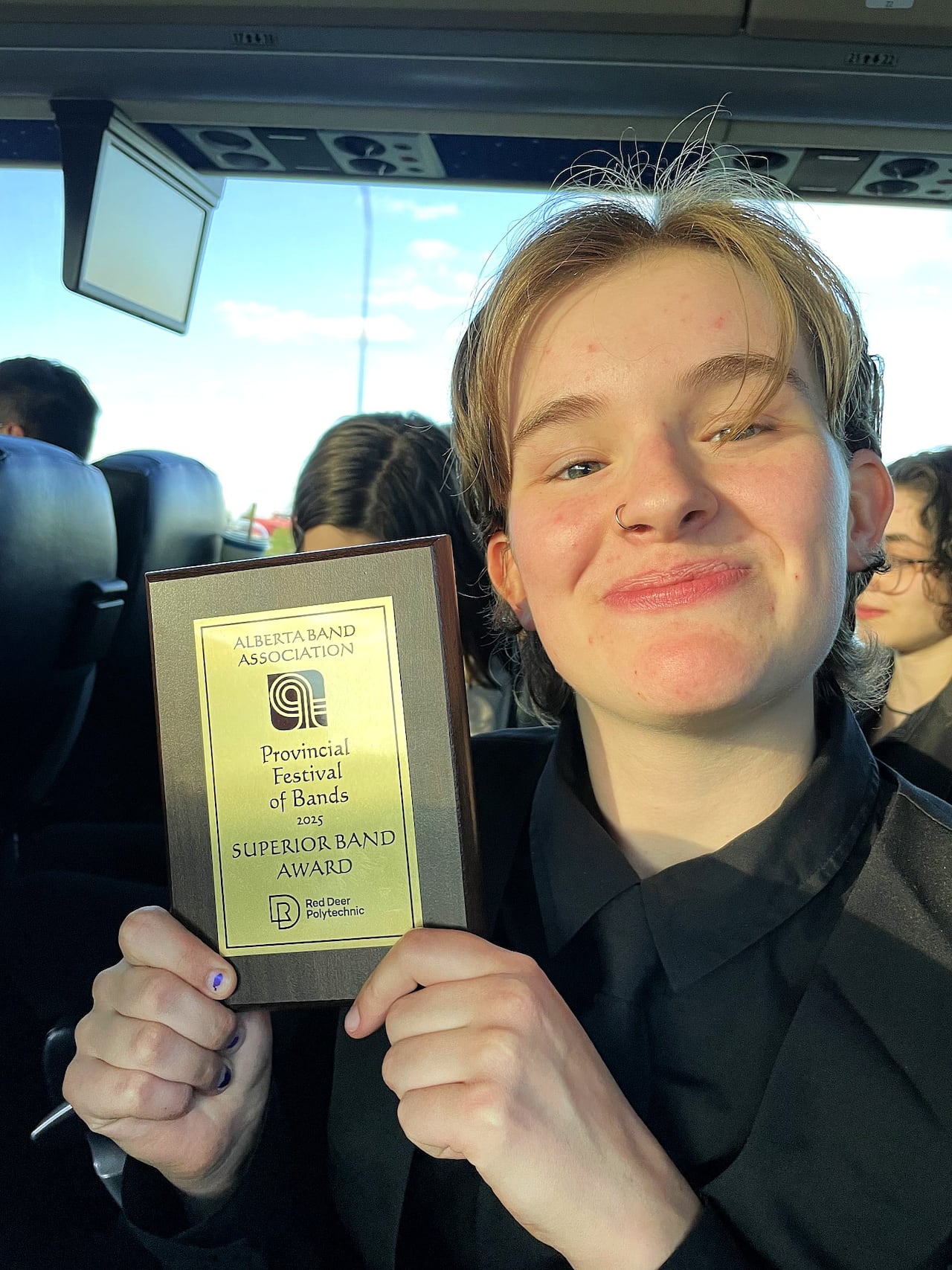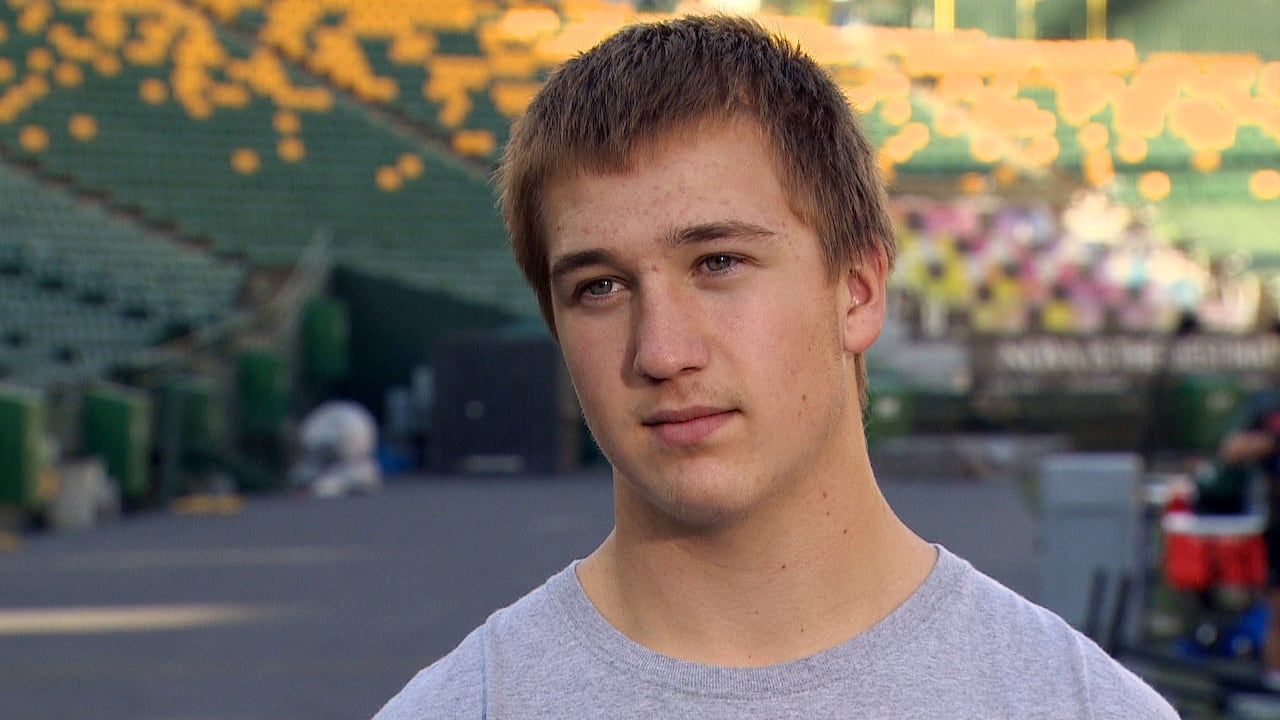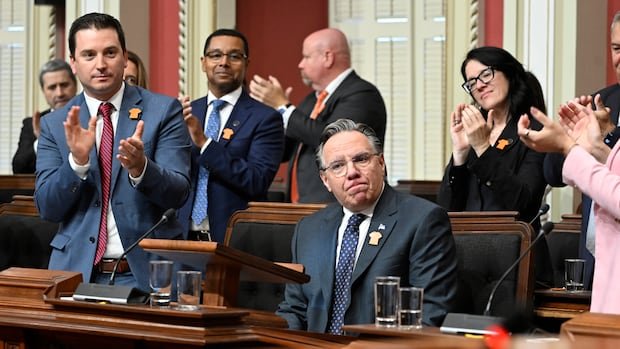Paige Beck is not the type to sit back.
The 16-year-old is maintaining her racing schedule despite the province-wide teachers’ strike in Alberta postponing provincial cross-country races.
He is also trying to keep up with the 12th grade biology course he is taking as an 11th grader.
But the teachers’ strike could be a barrier that cannot be overcome.
On October 6, more than 51,000 teachers across Alberta walked off the job after months of failed negotiations between the Alberta Teachers’ Association and the provincial government.
Key issues the two can’t agree on include classroom sizes and salaries. The resulting strike is now heading into its third week.
The Alberta Teachers Association says it is insulted by a letter from the province asking teachers to voluntarily return to work. The province’s request also proposes taking a key negotiating issue off the table.
And students are starting to feel the pressure.
“I’ve missed 10 days of class, which is almost an eighth of the course,” Beck said of his biology class.
“I’m very worried about how I’ll do on my diploma and how that will affect my college application.”
On Friday, the province announced it would adjust the way standardized tests, also called “diploma exams,” will work.

Those tests are worth a large portion of a student’s final grade and can affect their chances of entering postsecondary programs.
The November diploma exams will now be optional.
If a student does not want to take the written exam, their final grade will be based entirely on other grades.
The province says choosing not to take the exams will not affect a student’s ability to apply to post-secondary schools.
But, unfortunately for Beck, no changes have been made to exams scheduled for January or June, meaning she must prepare alone for her biology exam, which is worth 30 percent of her grade.
“Right now we’re talking about molecular genetics and the different phases of the cell. These are complicated concepts and very easy to confuse,” Beck said.
“It’s a lot harder trying to learn at home. It’s really helped me appreciate how much the teachers do for me and how much they do for everyone.”

Grade 12 student Jane Kundert faces double the pressure on diploma exams.
The 17-year-old needs to maintain his grades to maintain his early admission to the University of Alberta’s kinesiology program.
But they also applied to nursing programs at other schools. Admission there still depends on the January diploma exams.
“I’m definitely stressed about this,” Kundert said.
“I’m a little hesitant because, on the one hand, I’m really glad the teachers are doing something because the class sizes are affecting my learning. But the strike is also affecting my learning. So it’s a lose-lose situation.”
Alberta Premier Danielle Smith said Friday that her government would enforce back-to-work legislation if students have not returned to classrooms before the legislature meets on Oct. 27.
“It would constitute irreparable harm to children, especially those preparing for college and diploma exams,” Smith said.
“If we don’t get back to the table next week, with students returning to classrooms, hopefully there will be legislation.”
Kundert says returning to class could help with testing, but a forced return of teachers could mean teachers not taking on extracurricular responsibilities like coaching.
“This is our last year of high school and we’re used to seeing all these people in grade 12 having fun their senior year,” they said.
“Working under the rules, such as the absence of sports teams, clubs, activities and school trips, would completely disrupt our last year of high school.”

The lack of school sports is already affecting students who rely on sports scholarships.
Contingency plans for the School Sport Alberta strike include the possibility of canceling the provincial soccer and volleyball championships if the teachers’ job action continues until mid-November.
The lack of regular games is already affecting 16-year-old Joe Klespitz, a running back for the Ardrossan Bisons.
The Grade 11 student at Ardrossan Junior Senior High School says without a season or championship, he won’t have recent game tape to send to post-secondary coaches or recruiters.
“They start looking at you in 11th grade and start scouting you, so by 12th grade, you can have a scholarship or an opportunity ready for you right after you finish the season,” Klespitz said.
“I’m quite worried about it, but I’m sure that in the end everything will work out. But it sucks, of course, to lose films and lose those opportunities that may come your way.”








